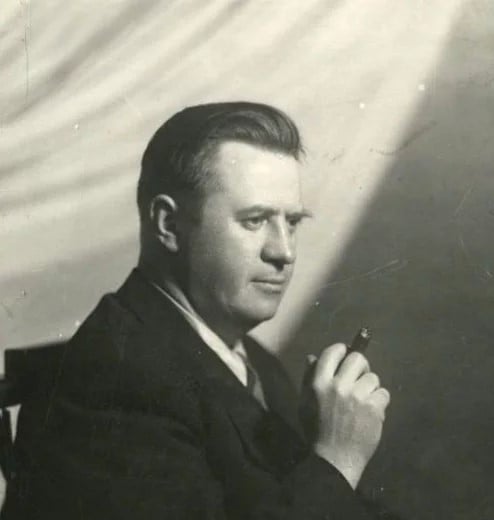
Gavriil Nikolayevich Popov
• Gavriil Nikolayevich Popov was born in 1904 in the southern Russian city of Novocherkassk and received his first composition lessons from Mikhail Gnessin
• 1922 to 1930 studied piano and composition at the conservatory in Rostov-on-Don
• was also interested in archaeology and literature
• like Dmitri Shostakovich, who accompanied silent films live as a pianist in the 1920s, Popov also earned his living as a pianist in dance studios
• 1927 to 1931 piano and composition teacher at the Leningrad Music School
• Member of the Association for Contemporary Music (ASM) in the 1930s
• from 1932 to 1937 functionary in the Leningrad Composers' Association
• repeated conflicts with the Central Committee of the CPSU
• Evacuation to Alma-Ata during the Second World War
• dramatic musical language, especially in the contrasting symphonies, which are reminiscent of both Rimsky-Korsakov and Scriabin
• strong leaning towards expressionism
• innovative orchestration, not afraid of dissonance and experimentation
• Resident in Moscow from 1944
• 1946 awarded the Stalin Prize for his Symphony No. 2, after his Symphony No. 1 had been subjected to harsh criticism many years earlier
• Popov also wrote a number of patriotic works with clear references to the history of the Soviet Union
• like Shostakovich, the composer kept his true thoughts on Soviet cultural policy and personal convictions to himself, unflinchingly utilising influences from the Western avant-garde
• declining health in the last decade of his life and death in 1972 in Repino, not far from Leningrad
Gavriil N. Popov's works with Boosey & Hawkes / Sikorski:
Symphony No. 2
Chamber Symphony for flute, clarinet, bassoon, trumpet, violin, cello and double bass (1927)Chamber Symphony. Chamber Symphony for flute, clarinet, bassoon, trumpet, violin, violoncello and double bass (1927)
